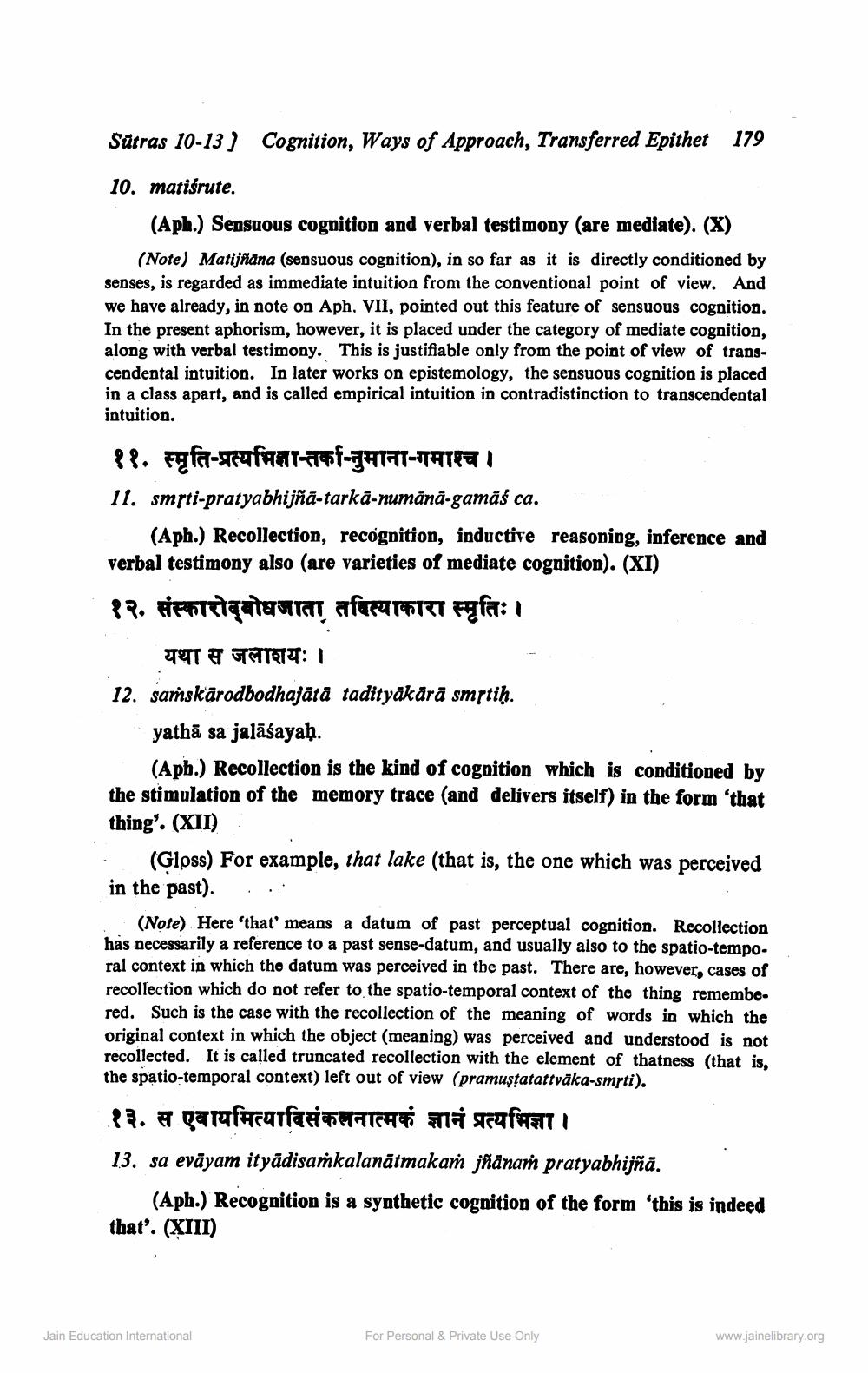________________
Sütras 10-13)
Cognition, Ways of Approach, Transferred Epithet
179
10. matiśrute.
(Aph.) Sensuous cognition and verbal testimony (are mediate). (X)
(Note) Matijñana (sensuous cognition), in so far as it is directly conditioned by senses, is regarded as immediate intuition from the conventional point of view. And we have already, in note on Aph. VII, pointed out this feature of sensuous cognition. In the present aphorism, however, it is placed under the category of mediate cognition, along with verbal testimony. This is justifiable only from the point of view of transcendental intuition. In later works on epistemology, the sensuous cognition is placed in a class apart, and is called empirical intuition in contradistinction to transcendental intuition.
88. fifa-rufaa-479-JHAT-TATTI 11. smrti-pratyabhijñā-tarka-numānā gamāś ca.
(Aph.) Recollection, recognition, inductive reasoning, inference and verbal testimony also (are varieties of mediate cognition). (XI) १२. संस्कारोबोधजाता तपित्याकारा स्मृतिः।
यथा स जलाशयः। 12. saskārodbodhajātā tadityākārā smrti”.
yathā sa jalāśayaḥ
(Aph.) Recollection is the kind of cognition which is conditioned by the stimulation of the memory trace (and delivers itself) in the form that thing'. (XII) : (Gloss) For example, that lake (that is, the one which was perceived in the past). ..
(Note) Here that means a datum of past perceptual cognition. Recollection has necessarily a reference to a past sense-datum, and usually also to the spatio-tempo. ral context in which the datum was perceived in the past. There are, however, cases of recollection which do not refer to the spatio-temporal context of the thing remembe. red. Such is the case with the recollection of the meaning of words in which the original context in which the object (meaning) was perceived and understood is not recollected. It is called truncated recollection with the element of thatness (that is, the spatio-temporal context) left out of view (pramuştatattvāka-smrti). १३. स एवायमित्याविसंकलनात्मकं ज्ञानं प्रत्यभिज्ञा। 13. sa evāyam ityādisaṁkalanātmakaṁ jñānaṁ pratyabhijñā.
(Aph.) Recognition is a synthetic cognition of the form 'this is indeed that'. (XIII)
Jain Education International
For Personal & Private Use Only
www.jainelibrary.org




